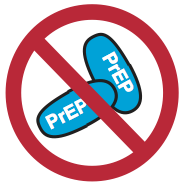NHS England pulls proposed timeline for PrEP: perpetuates HIV health crisis in gay men and trans people
22 March 2016. Related: HIV prevention and transmission.
Simon Collins, HIV i-Base

On 21 March 2016, NHS England appears to have blocked access to the most effective new option for protecting people at highest risk from catching HIV. [1]
This decision is despite evidence that in high risk populations, as enrolled in the UK PROUD study, PrEP is one of the most effective treatments: needing to treat only 13 people to prevent an infection. [2]
Community activists who were concerned about the continued delays – data from PROUD were released in October 2014 – had launched a campaign to ensure the public consultation go ahead as planned. This would have enabled a decision on access to be made in June. [3]
Although the commissioning report looking at the evidence supporting PrEP has been written and circulated for comments to a closed group, NHS England has refused to take the essential next step to ask for public comments.
This is another example of the NHS using bureaucracy to delay access to effective treatment, similar to the way that access to sofosbuvir to treat hepatitis C was drawn out.
The rationale for this is inexcusable. With more than 500 people diagnosed in the UK every month, these are infections that could be prevented. Instead, more that 6000 people each year will become dependent on lifelong treatment due to the lack of political will to prioritise the sexual health of people who are often already marginalised.
COMMENT
It is also notable that HIV rates have been constant for at least the last ten years, despite the vast majority of HIV positive people being uninfectious because they are on effective treatment. The lack of any reduction in infection rates highlights the limitations and failure of prevention programmes based only on using condoms.
Over the last two years, an increasing number of community activists – including HIV i-Base – have helped publicise the effectiveness of PrEP. This has lead to increasing use of generic PrEP bought online for personal use. While this is legal in the UK and affordable for some, it is not an option for many of those who are most vulnerable.
The lack of positive information to support young people during school years irrespective of sexuality already disproportionately affects young people who are gay or transgender and who are at highest risk of becoming HIV positive.
At a time when there is a global move to expand access to PrEP, including in WHO guidelines, it is extremely regressive for the UK to block further access.
This is an especially shoddy way to treat UK participants in research. These participants proved the effectiveness of an intervention that helped ensure they remained HIV negative and that is now blocked for wider access.
In response, National AIDS Trust have just launched a campaign for people to contact their MP as a matter of urgency.
http://act.lifewithhiv.org.uk/lobby/PrEPMP
References:
- NHS England. Update on commissioning and provision of Pre Exposure Prophylaxsis (PREP) for HIV prevention. (21 March 2016).
https://www.england.nhs.uk/2016/03/prep - McCormack S et al. Pre-exposure prophylaxis to prevent the acquisition of HIV-1 infection (PROUD): effectiveness results from the pilot phase of a pragmatic open-label randomised trial. The Lancet. Sept 9 2015.
http://dx.doi.org/10.1016/S0140-6736(15)00056-2
http://www.thelancet.com/journals/lancet/article/PIIS0140-6736(15)00056-2/fulltext - NAT Campaign. Write to the CEO of NHS England about PrEP.
http://act.lifewithhiv.org.uk/lobby/whereisprep

